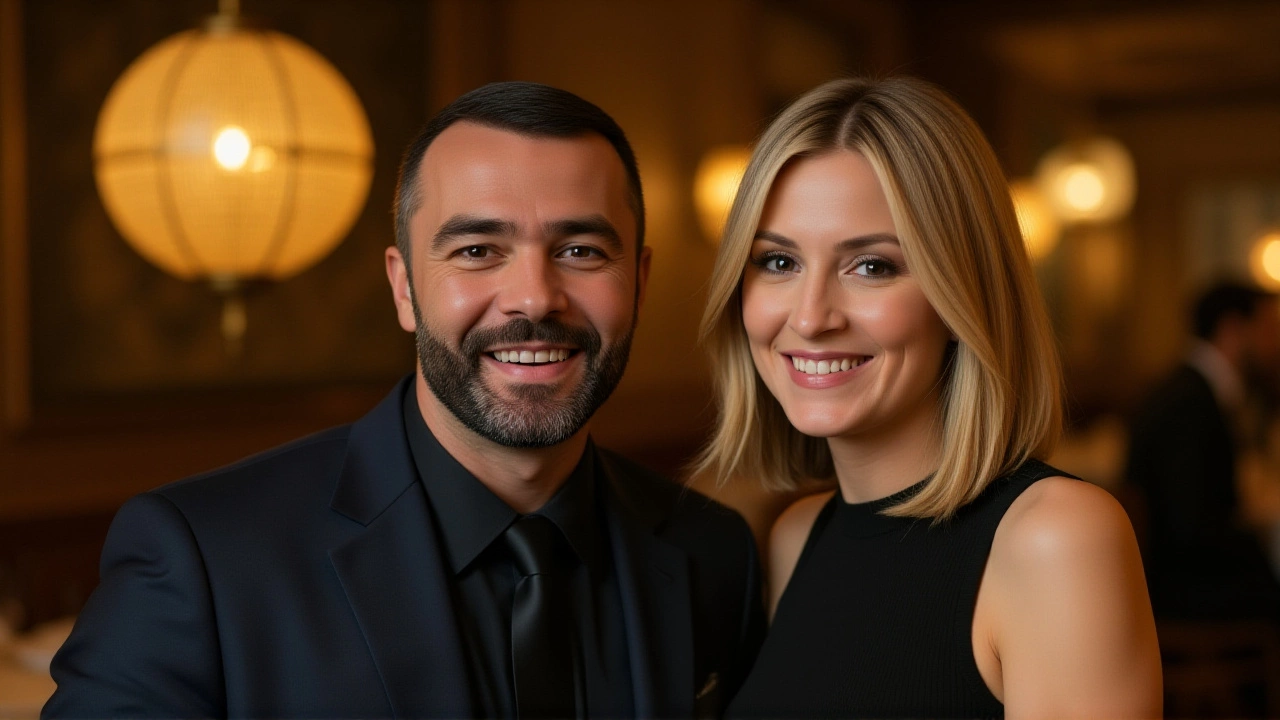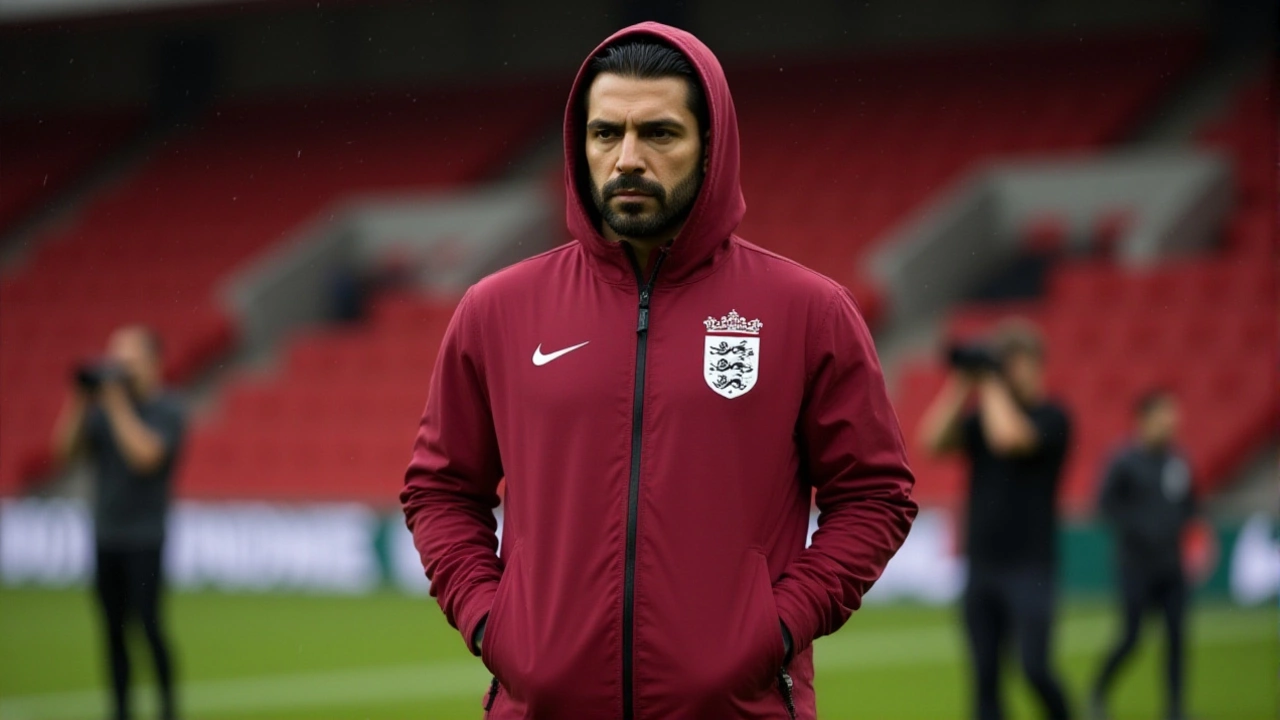On September 14, 2024, Ashley Cole, the 43-year-old former England left-back with 107 international caps, stepped away from his role as first-team coach at Birmingham City Football Club to take up a full-time position with The Football Association. The move, confirmed simultaneously by England Football, ESPN, and the EFPA, marks a pivotal shift in England’s coaching structure — and signals growing confidence in Cole’s ability to shape the next generation of Three Lions talent.
A Quiet Exit, Big Implications
Cole’s departure from St. Andrew’s Stadium came just eleven months after he joined manager Wayne Rooney’s staff in October 2023. There was no fanfare, no press conference. Just a quiet announcement that he was returning to the FA’s player development pipeline — a place he’d already helped transform. Since July 2021, Cole had been working part-time with England’s Under-21s, helping them win the 2023 UEFA U21 European Championship in Georgia. Now, he’s all in.What makes this significant isn’t just the promotion — it’s the timing. Cole’s full-time appointment arrives just after England’s narrow 2-1 win over the Republic of Ireland and a 3-1 victory against Finland during the September 2024 Nations League window. Those results, under interim head coach Lee Carsley, have quietly reignited hopes that England’s rebuild might be on track. And Cole? He’s now the glue holding the youth and senior setups together.
From Chelsea Star to FA Architect
Cole’s playing career was the stuff of legend: 107 England caps, five major tournaments, a Champions League winner with Chelsea, and a Premier League Hall of Fame induction in 2025. But it’s his post-playing evolution that’s becoming more fascinating.After retiring in August 2019 — following a brief, unremarkable stint at Derby County — Cole didn’t rush into coaching. He studied. He observed. He worked under Frank Lampard at Everton, then Rooney at Birmingham. Each stop taught him something new: how to manage egos, how to adapt tactics, how to speak to teenagers who’d never seen him play.
His most telling moment? The 2023 U21 Euros final in Georgia. Cole didn’t shout. He didn’t pace the touchline. He stood quietly beside Carsley, offering quiet suggestions. When the final whistle blew, it was Cole who first embraced the captain — a 19-year-old named Jarell Quansah. That’s the kind of leadership the FA needs now: steady, experienced, unflashy.
The Bigger Picture: Who’s Really Running England?
Carsley was named interim head coach on August 9, 2024, after Gareth Southgate’s departure. His mandate? “Stay through autumn.” But now, with Cole’s full-time return, the message is louder: This isn’t just a stopgap.Coaching staff appointments like this rarely happen by accident. The FA doesn’t pull a 107-cap legend out of a part-time role unless they’re planning something long-term. Cole’s deep ties to both the U21s and senior team make him the perfect bridge — and possibly the future head coach-in-waiting.
He knows the youth system inside out. He’s coached under three different managers in the last three years. He’s seen how players develop — or don’t. And he’s the only coach on staff who’s played at the highest level for England for over a decade. That’s rare.

Legacy Beyond the Pitch
There’s another layer here, quietly poignant. Cole’s official move came the day after the funeral of Sven-Göran Eriksson, the manager who gave Cole his England debut in 2001. Eriksson’s tenure saw England reach two World Cup and two European Championship quarterfinals — the same heights Cole now hopes to help the next generation reach.It’s not lost on insiders that Cole, once a controversial transfer from Arsenal to Chelsea in 2006, has spent his post-playing life rebuilding trust — with clubs, with players, with the FA. He’s no longer the fiery young left-back who accused Arsenal of betrayal. He’s the calm voice in the dressing room, the one who remembers what it felt like to be young, talented, and unsure.
What’s Next?
Cole’s new role will focus on the entire England men’s player pathway — from U16s to the senior team. He’ll work closely with talent scouts, academy directors, and position-specific coaches. The FA’s goal? Reduce the gap between youth development and senior performance. Too many promising English kids fade out after 18. Cole’s job is to make sure they don’t.Expect to see his fingerprints on future squads: a more cohesive transition from U21s to the senior team, more emphasis on left-back development (a position England has struggled with since Gary Neville retired), and perhaps even a return to the old England values — discipline, work rate, and tactical intelligence.
And if Carsley gets the permanent job? Cole will be his most trusted lieutenant. If someone else takes over? Cole’s credibility means he’ll still be the one the FA turns to.

Background: The Coaching Path of a Legend
Cole’s journey since retirement reads like a masterclass in reinvention:- 2019: Retired after playing for Derby County under Frank Lampard
- 2022: Joined Everton as first-team coach under Lampard
- Jan 2023: Left Everton after Lampard’s dismissal
- July 2021: Joined FA part-time as U21 assistant
- Oct 2023: Joined Birmingham City under Wayne Rooney
- Sept 2024: Full-time FA appointment
What’s striking? He never chased headlines. He just kept showing up. And now, he’s at the center of England’s future.
Frequently Asked Questions
Why did Ashley Cole leave Birmingham City after only eleven months?
Cole didn’t leave because of performance — Birmingham were mid-table. He left because The FA offered him a full-time role shaping England’s entire youth-to-senior pathway, something he’d been quietly building since 2021. The FA prioritized long-term national development over short-term club needs, and Cole chose the bigger mission.
How does this affect England’s chances at Euro 2028?
Cole’s deep involvement with U21s means the next generation of England players — including stars like Evan Ferguson and Adam Wharton — will benefit from his experience in transitioning from youth to senior football. His presence ensures tactical continuity and mental preparation, which could be decisive in a tournament like Euro 2028 where youth depth matters more than ever.
Is Ashley Cole a potential future England manager?
Yes, and many insiders believe he’s the most logical successor to Lee Carsley. Unlike flashy candidates, Cole has no ego, deep FA relationships, and a proven ability to develop players. His quiet leadership style mirrors the FA’s current philosophy: substance over spectacle. He’s being groomed, not just hired.
What’s different about Cole’s coaching approach compared to others?
Cole doesn’t just teach tactics — he teaches resilience. Having played under managers like Arsène Wenger, José Mourinho, and Frank Lampard, he’s seen how elite environments break players. He focuses on emotional intelligence, communication, and handling pressure — skills rarely prioritized in youth academies. His players say he listens more than he talks.
Why was his move from Arsenal to Chelsea so controversial?
Cole left Arsenal in 2006 after publicly accusing the club of betraying him during a “tapping-up” scandal with Chelsea. He claimed the Arsenal board used him as a scapegoat and deliberately excluded him from their 2006-07 team photo. The move damaged his reputation temporarily, but his professionalism on and off the pitch eventually won back fans — and now, the FA.
How does Cole’s appointment impact left-back development in England?
England has struggled to produce world-class left-backs since Gary Neville retired. Cole, one of the best ever, will now lead a targeted program to identify and nurture young left-backs — focusing on defensive discipline, overlapping runs, and mental toughness. Expect to see more left-backs in U17 and U19 squads with his direct input by 2025.

 Sports
Sports